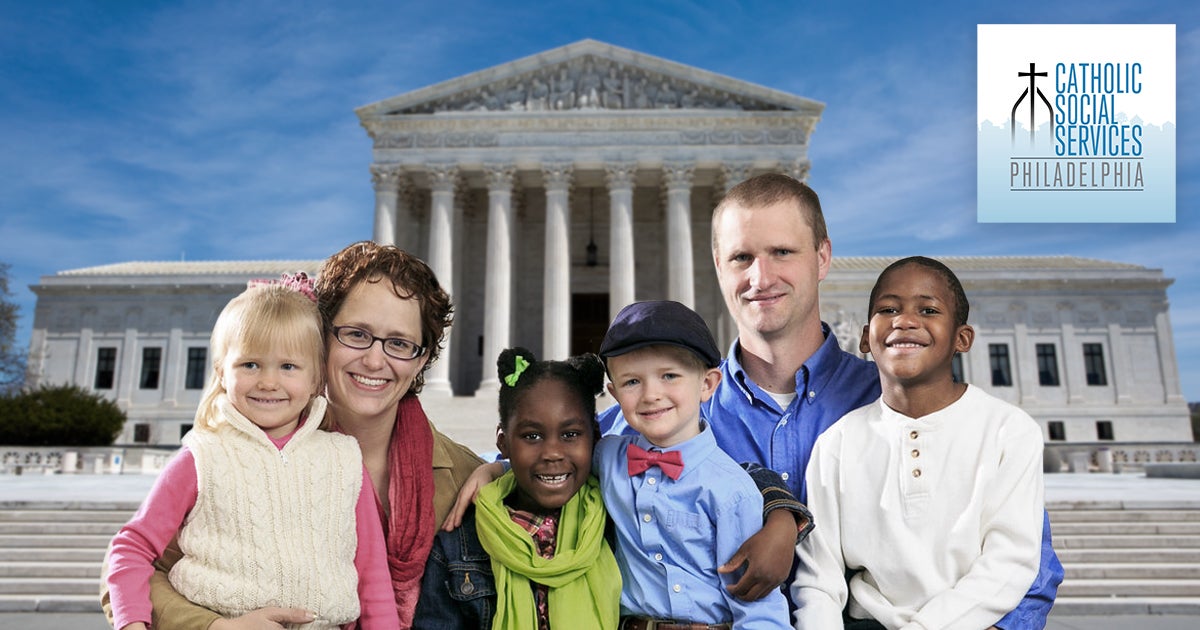
by Jorge Gomez • 5 min read
The confirmation of Justice Amy Coney Barrett to the U.S Supreme Court marks the first conservative-appointed majority since the 1930s, a composition that could have a lasting impact in how the Court rules on religious freedom cases.
In fact, on Wednesday of next week— just one day after the November 3rd elections—the nation’s highest court will hear oral argument in Fulton v. Philadelphia, one of several, critical religious liberty cases in this SCOTUS term.
Last year the city of Philadelphia issued a restriction requiring religious agencies to place children with same-sex couples. When Catholic Social Services (CSS) refused to comply, it lost its contract with the city. CSS then filed a lawsuit claiming that the city of Philadelphia discriminated against them by refusing to place children with the agency because of its beliefs.
First Liberty filed a friend-of-the-court brief earlier this year supporting CSS in the fight to save its foster care agency, arguing that government officials should not be allowed to force faith-based organizations into adopting a social orthodoxy that violates their sincerely held beliefs.
Let’s recap some of the major implications involved in the Fulton case, as well as how Justice Barrett’s presence on the Court could play a role in the final ruling.
The Stakes: 3 Ways the Fulton Case Could Impact Religious Freedom Nationwide
First, if the Supreme Court rules in favor of CSS, it could help ensure faith-based agencies can keep providing services to children in need without the government forcing them to forego their convictions or close their doors.
While the issue presented before the Court involves one Catholic agency in Philadelphia, it may affect at-need children beyond the “City of Brotherly Love.” There are more than 400,000 American children who rely on foster care agencies (many of them religiously-affiliated) to be rescued from the kind of abuse or neglect most of us can only imagine.
Second, hearing this case will also give the Supreme Court an opportunity to review (and possibly overturn) the 1990 decision, Employment Division v. Smith, which lowered the bar of scrutiny by courts on government action impacting the free exercise of religion. For nearly three decades, Smith has been an obstacle to free exercise claims against restrictions on Americans’ right to freely live out their faith.
Third, Fulton could have a broader impact on the way courts interpret and approach the First Amendment. Now that there are a majority of conservative-appointed justices, will the Court adhere to the original intent of the First Amendment, which requires the government to respect the diverse beliefs of all Americans? The final outcome will be impactful for those who look to the Constitution for protection of their religious beliefs on a host of issues including marriage, gender, sexuality, and others when those beliefs are unpopular or run contrary to the modern cultural orthodoxy.
Here’s the bottom line: Fulton could turn out to be a landmark precedent in how courts analyze the crucial question of whether governments can force faith-based businesses and religious organizations out of business because they choose to operate in accordance with their faith.
Could Justice Barrett Be a Deciding Vote on the Court’s Fulton Decision?
In recent years, some of the most consequential First Amendment cases at the Supreme Court have been decided by a narrow 5-4 margin, including cases relating to the rights of students to attend religious schools, the constitutionality of religious symbols on public land, and even the rights of religious groups not to convey messages against their beliefs.
And while many of those have concluded with decisions favoring religious freedom, the fact remains that the vote of a single justice could have produced a different outcome—one that may have been detrimental to the constitutional rights of millions of Americans.
So, what will be the impact of Justice Barrett in a high-stakes case like Fulton?
We have some insight on how Justice Barrett might review Fulton by looking at a ruling she issued as a circuit court judge. In Grusgott v. Milwaukee (2018), a three-judge panel of the 7th Circuit ruled that a Jewish day school and “religious organizations are free to hire and fire their ministerial leaders without governmental interference.”
Justice Barrett’s ruling in that case is consistent with a textualist judicial philosophy and a plain reading of the Constitution according to its original text. What’s more, it affirmed important SCOTUS precedent protecting religious freedom.
Of course, it’s still too early to speculate whether Justice Barrett will be the make-or-break vote on the Court.
However, if Justice Barrett’s originalism and her decisions as an appellate judge are any indication, then there are signs of hope religious groups across the country whose rights hinge on a favorable decision in the Fulton case.